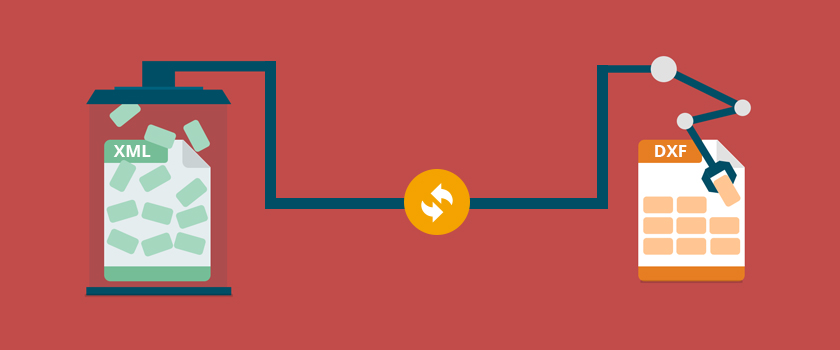Bulgaria Culture: Traditions, Language and Etiquettes
By: Vanessa Anderson Posted on Mon, 27-04-2020

Bulgaria is the country that is situated in South-eastern Europe. Its neighboring countries are Romania and Turkey and its boundaries are joined by the black sea. Sofia is the capital of Bulgaria. Inhabitants of Bulgaria are 7 million with various ethnic groups that include 83.9 percent Bulgarian, 9.4 percent of Turk, 4.7 percent of Roma and the remaining 2 percent includes Circassian, Macedonia, Tatar and Armenian.
If you are planning to tap into Bulgarian markets, it’s better to do some research first and know about their culture, language, and business etiquette.
Let’s take a quick look into Bulgarian culture.
Language
- The Bulgarian language is spoken by 12 million speakers. Bulgarian is also spoken in Greece, Turkey, Serbia, Macedonia, Romania, and Ukraine. Bulgarian is mutually inclusive with Slov, Bosnian, Croatian, and Serbian.
- The Bulgarian language is from the group of Slavic languages. It was first written in the 9th century in Glagolitic script but with time, it is taken up by Cyrillic script.
- In the 18th century, the Russian script of Cyrillic or the civil script of Peter the Great was revised. In the 19th century, many alphabets containing 28 or 44 letters were used. By the time in the 1870s, a version with 32 letters was recommended by Marin Drinov and it is widely used. This script was in use till the orthographic alteration was made. In this alteration, certain letters were removed from the alphabets.
- The standard Bulgarian dialect has been used in Bulgaria since its independence in 1878. In the era of the Ottoman empire, many Turkish words were adopted in the Bulgarian language. Loanwords are also taken from Latin, Italian, French, Germany, Russian, and mainly from English.
Bulgarian Community and Culture
- The majority of Bulgarian natives are born in Bulgarian conventional churches.
- The church is the symbol of Bulgarian identity under Ottoman and Communist empire.
- The Church retained its position even in the era of the Soviet Union fall and in the era of the communist party in Bulgaria, the church regained its popularity. They started celebrating religious holidays, church weddings, and baptism.
Family System in Bulgaria
- In Bulgaria, the family is considered as a social unit, and the community is based on it.
- They prefer to extend their family
- They follow a joint family system and live in the same room.
- The family system in Bulgaria is close-netted and they support each other.
Chain of Command in Family System
- In Bulgaria eldest and old people are given great honor and respect according to their position.
- Eldest family members are given the best food and they are greeted and served first.
- Eldest people in society are responsible for making rational decisions for the family.
Culture and Antiquity
- Bulgarians have a rich culture and they are very proud of it.
- They take great interest in preserving their culture and for this reason, culture and traditions are passed on to the next generations.
- The rich culture and heritage of Bulgaria are also depicted in jewelry, costumes, dance, music, and cuisine.
Social Etiquette in Bulgaria
- Bulgaria is considered as a formal society. People greet each other with formal and reserved modes of conduct.
- While greeting, they make a firm handshake and keep eye contact.
- If you know the people with whom you are meeting then you need to call them with their titles followed by the surname.
- Only close acquaintances greet each other with their first names and with a hug.
- Bulgarian people adjust according to the type of gathering. If the gathering is informal then they become informal with them.
Exchange of Gifts
- Gifts are usually exchanged at birthdays, Christmas, and when they are invited to someone’s house.
- They prefer not to give expensive gifts because they feel it will embarrass the other party. They value the love and feelings more than the gift despite its price.
- When they are invited to someone’s home, they take flowers and a bottle of wine for their hosts. Chrysanthemums, lilies, and gladiolas are avoided because they are used in funerals.
- Newborn babies are given an odd number of presents.
Dining Etiquette
- Table manners followed in Bulgaria are casual but some rules need to be followed.
- When you are invited for dinner at the dining table, you need to wait until your seat is shown to you.
- Napkins are folded and placed next to the plate. If everyone is unfolding them then you need to do the same and place it on your lap.
- You are not supposed to start your meal unless your hostess asks you to do so.
- The oldest person on the table is asked to start eating first.
- Your hands always need to be visible but make sure you don’t rest your elbows on the table.
- If you are taking food for the second time then it means you are enjoying the food.
- Glasses are refilled so if you do not want more then leave a mouthful at the end.
Business Etiquette in Bulgaria
- Greetings are done with the firm handshake while keeping eye contact.
- They shake hands when they meet and when they depart.
- They address people with their titles followed by their surname.
- The exchange of business cards is done at initial meetings.
- If your company is 25-50 years old then you should include the establishment date on your business card. You can also add your academic qualifications.
- If you translate your card into the Bulgarian language then you can impress your recipients.
Business Meetings
- Networking is important in Bulgaria. You need to spend time with each other before starting any new business venture.
- An initial meeting is used for introduction, and your next meeting can be used for business discussions.
- If you know that your partner is in Bulgaria, then you should hire a translator who can assist you with all your business requirements.
- Eye contact predicts trust and sincerity.
- All facts and figures should be included in the presentation in visual form.
- Bulgarians do not appreciate long conversations so keep your conversation short.
- Meetings are held at a slow pace so that details are understood easily.
- They do not bother much about deadlines and they make sure all the details are mentioned before closing the business proceedings.
- Practice patience because no business ventures are completed swiftly in Bulgaria.
- The span of the meeting is usually longer.
- Professionalism and formality are the essences of business meetings. Casual behavior in meetings is not considered good.
Wrapping Up
You must be amazed to know the culture, traditions, language and Etiquettes of Bulgaria. If you want to scrutinize the Bulgarian culture more than you need to know the Bulgarian language. If you need Bulgarian translation for some business documents, cards, or website, Mars Translation is there for you. We are providing state-of-the-art Bulgarian Translation Services in a fast turnaround time.

Africa is the second largest and second most populous continent. As recent statistics suggest, 1,486,275,887 is the current population of
Read more
dxf: DXF is a CAD data file format developed by Autodesk for CAD data exchange between AutoCAD and other software. docx:
Read more
Mars Translation can help you extract the texts in a DXF file and convert them into a XML file so
Read more
Mars Translation can help you extract the texts in a DWG file and convert them into a Word file so
Read more
No state on the western side of the globe can compare the strategic geographic location, diverse multilingual workforce, and attention
Read more
San Diego is California's second-largest city, and it has a population of 1.3 million from which three million residents are
Read more
Dallas is the largest state in Texas after Houston and San Antonio. It is the ninth most populous city in
Read more
In this day and age, users love to consume video content. Statistics show that almost 90% of all internet users
Read more
Virtual reality is transforming our imaginative worlds into existence. Since childhood, we used to create visionary kingdoms and act like
Read more